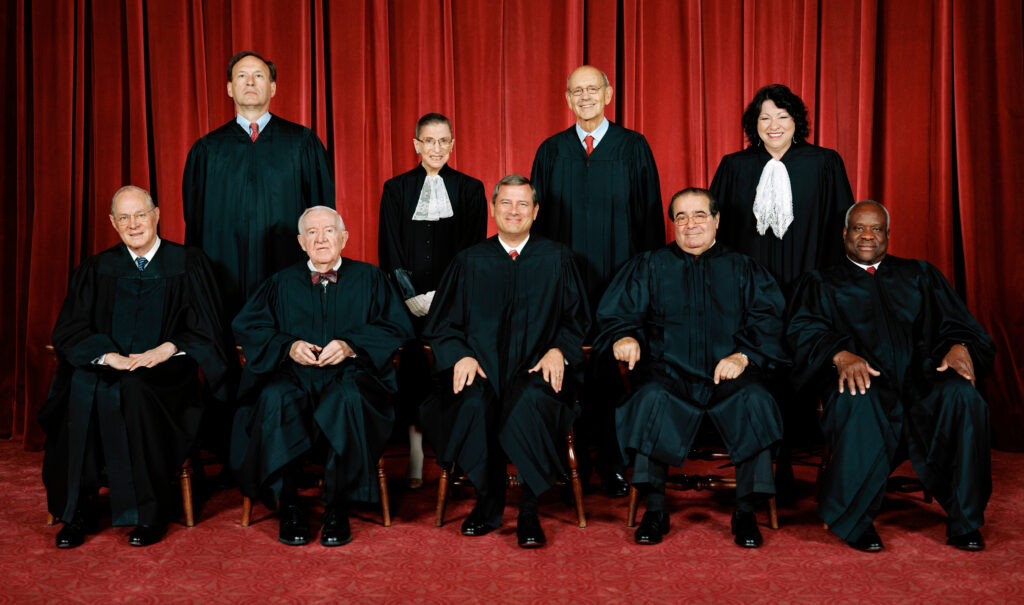The U.S. Supreme Court has agreed to hear an important case involving a narrow aspect of the Environmental Protection Agency’s power to regulate greenhouse gas emissions from power plants and other stationary sources of pollution. The Court simultaneously declined to hear an appeal that challenged EPA’s endangerment finding that classifies carbon dioxide (CO2) as a pollutant.
In June 2012 a federal appellate court ruled EPA’s decision to regulate greenhouse gas emissions from new motor vehicles gave the agency the procedural justification to regulate greenhouse gas emissions from stationary sources such as factories and power plants. Several states and industry groups challenged the decision, and the Supreme Court has agreed to hear the case.
EPA Circumventing Congress
Marlo Lewis, a senior fellow at the Competitive Enterprise Institute (CEI), says EPA is attempting to enact carbon dioxide restrictions that were explicitly rejected by a Democrat-controlled U.S. Congress.
“In the 2000s, several lawmakers introduced climate bills containing carbon dioxide performance standards that no coal power plant can meet without carbon capture and storage technology. The Waxman-Markey cap-and-trade bill contained such a mandate. None of those bills was ever enacted. If EPA’s ‘carbon pollution’ rule were introduced as a bill today, it would be dead on arrival,” said Lewis.
“When Congress enacted and amended the Clean Air Act, it never intended for the Act to ban new coal generation. The EPA is making law in the guise of implementing it. The core issue in the debate on EPA’s carbon rule—and greenhouse gas regulation in general—is who shall determine national policy: nonelected, politically unaccountable bureaucrats or the people’s elected representatives? The Constitution permits only one answer to that question,” he explained.
A Matter of Science
Tom Harris, executive director of the International Climate Science Coalition (ICSC), said EPA and other U.S. federal agencies are following the lead of Canada, where federal agencies are implementing restrictions that were strongly rejected by elected legislators. Harris said the best way to combat this, instead of legally challenging certain components of EPA’s actions, is to educate people on the science and build political pressure against agency overreach.
“I liken what’s happening regarding these lawsuits to a suspect in a murder trial. The suspect has several key eyewitnesses that can prove he didn’t commit the murder, but his defense attorney ignores their testimony and instead tries to merely keep him from being executed,” said Harris.
“People in the coal industry and other sectors of the economy punished by EPA regulations keep bringing up the secondary issues, like regulations are going to be expensive or people will lose their jobs. This is not an effective strategy,” Harris said.
Harris said if industry groups brought in scientists like Patrick J. Michaels or Tim Ball to confront EPA and environmental activists on the science of their claims, this would be much more effective than raising procedural issues and talking about economic harm.
“This latest Supreme Court challenge is just a sop for our side, and it won’t make a difference,” said Harris. “If Americans want to see where President Obama is taking them, they need look no further than Ontario, Canada. Ontario has the highest-priced energy costs in North America because of similar legislation. In two years there will be no coal–fired power plants in Ontario.”
“Ontario has a higher per capita debt than California and is building windmills like crazy. Ontario used to be a ‘have’ province, meaning its taxes helped support the ‘have not’ provinces in Canada. That has all changed. Thank goodness we still have Alberta,” said Harris.
Growing Agency Power
H. Sterling Burnett, a senior fellow at the National Center for Policy Analysis, said this latest Supreme Court case shows the growing power of federal agencies and the increasing irrelevance of Congress.
“EPA has usurped its power. Government is not supposed to rule willy-nilly through administrative agencies, though they’ve been doing so under the guise of the Clean Air Act the past 30 to 40 years,” said Burnett.
“Even if EPA loses, it’s not clear what this will mean. First, they will probably lose by a very narrow margin. Second, the court will just tell them to go back and justify their finding of harm. Even then, EPA will have some wiggle room and the Court can reexamine these findings again at a later date,” Burnett added.
“The law is designed to go after bigger polluters like factories and power plants. It’s not certain if and how EPA will exempt smaller businesses like mom-and-pop shops. Also, it’s not clear if EPA even has the discretion to exempt smaller entities. However, if EPA really does regulate everyone under the Clean Air Act, regardless of size, there will be a political revolt and every mom-and-pop store would vote to repeal the regulations,” he explained.
Seton Motley, president of the public policy organization Less Government, says when EPA was created, it was intended to operate primarily in an advisory, cooperative capacity, yet the agency has become just another arm of ever-expanding government power.
“Like many of these agency creations, EPA has grown far beyond what it was ever supposed to do,” said Motley.
‘More Expensive Energy’
He says this latest dispute and court case is merely another shot across the bow of affordable coal power.
“EPA feels emboldened because President Obama won a second election,” Motley explained. “The agency takes this as a mandate to destroy or tax more of the private sector. If EPA wins, the result is going to be more expensive energy and more growth overseas as corporations flee the punitive regulatory environment and higher taxes of the United States.”
Kenneth Artz ([email protected]) writes from Dallas, Texas.





